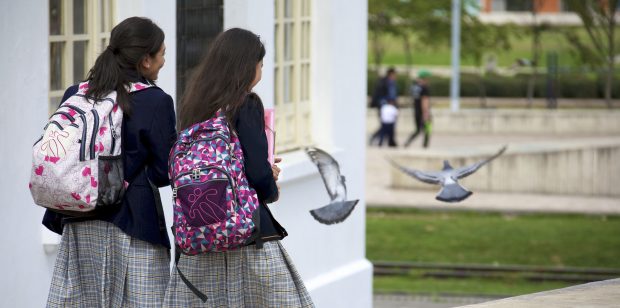
Today’s Education in the media blog looks at the BBC’s piece on grammar schools, the National Education Union’s press release on holiday hunger, and responds to Robert Halfon’s latest comments on school exclusions.
Grammar School Places
Today, Wednesday 1 August, BBC News has run an analysis piece on the expansion of grammar schools. The BBC reports that since 2010, there have been 11,000 school places created by grammar school expansions.
However it is important to note that this is part of a wider growth in school places which has seen 825,000 new places created in all types of schools in the same period. The vast majority of these places have been in good or outstanding schools.
The £50m Strategic School Expansion Fund, also referenced by the BBC, represents a small proportion of the £23 billion we are spending to create more good school places. Applicants for grants from the fund are only eligible if they can show how they will increase access for pupils from disadvantaged backgrounds.
A Department for Education spokesperson said:
Any good school – whether it is a comprehensive, academy or selective school – is able to expand if there is a need and a parental demand. By 2020 this government will have created a million new school places, so it’s no surprise that grammars, some of the highest performing schools in the country, are part of that.
The criteria for grants from the Selective School Expansion Fund is clear. If applicants cannot show how they will increase access, they will not be eligible for funding.
NEU Press Release
Today, Wednesday 1 August, the National Education Union (NEU) published findings from a survey of 657 secondary school teachers, with more than half claiming children in their schools have experienced holiday hunger.
Last week we announced a new £2 million fund to help provide free meals to disadvantaged families across the country during the school summer holiday as well as holiday activity clubs in disadvantaged areas.
This money is alongside wider government investment in helping disadvantaged children which includes the £2.4 billion Pupil Premium, Free School Meals, and a £26 million investment to kick-start or improve breakfast clubs in at least 1,700 schools.
Children and Families Minister Nadhim Zahawi said:
We want every child to have the best chances in life and since 2010 there are 300,000 fewer children living in absolute poverty. This government is spending around £90billion a year on working age benefits, including for those on low incomes.
We have also just announced £2million investment to help thousands of families benefit from free activities and healthy meals during the summer holidays. Alongside this, we continue to support the country’s most disadvantaged children through free school meals and with £2.5billion through the Pupil Premium to support their education.
School Exclusions
Today, Wednesday 1 August, The Telegraph published an opinion piece by Robert Halfon, chair of the Education Select Committee, on school exclusions. It follows a report last week by the committee on alternative provision.
We will be considering recommendations made by the Select Committee in their report, as well as Ofsted’s assessment of behaviour in schools, which includes consideration of exclusion reasons and patterns.
School Standards Minister Nick Gibb said:
The number of children being excluded is lower than it was ten years ago but exclusions should only ever be used as a last resort. The rules are clear that they should always be reasonable and justified. Where pupils are excluded the quality of education they receive should be no different than mainstream settings.
We are taking a range of actions to drive up the quality of alternative provision, and have launched an external review to look at how exclusions are used and why certain groups are disproportionally affected.
Follow us on Twitter and don't forget to sign up for email alerts.